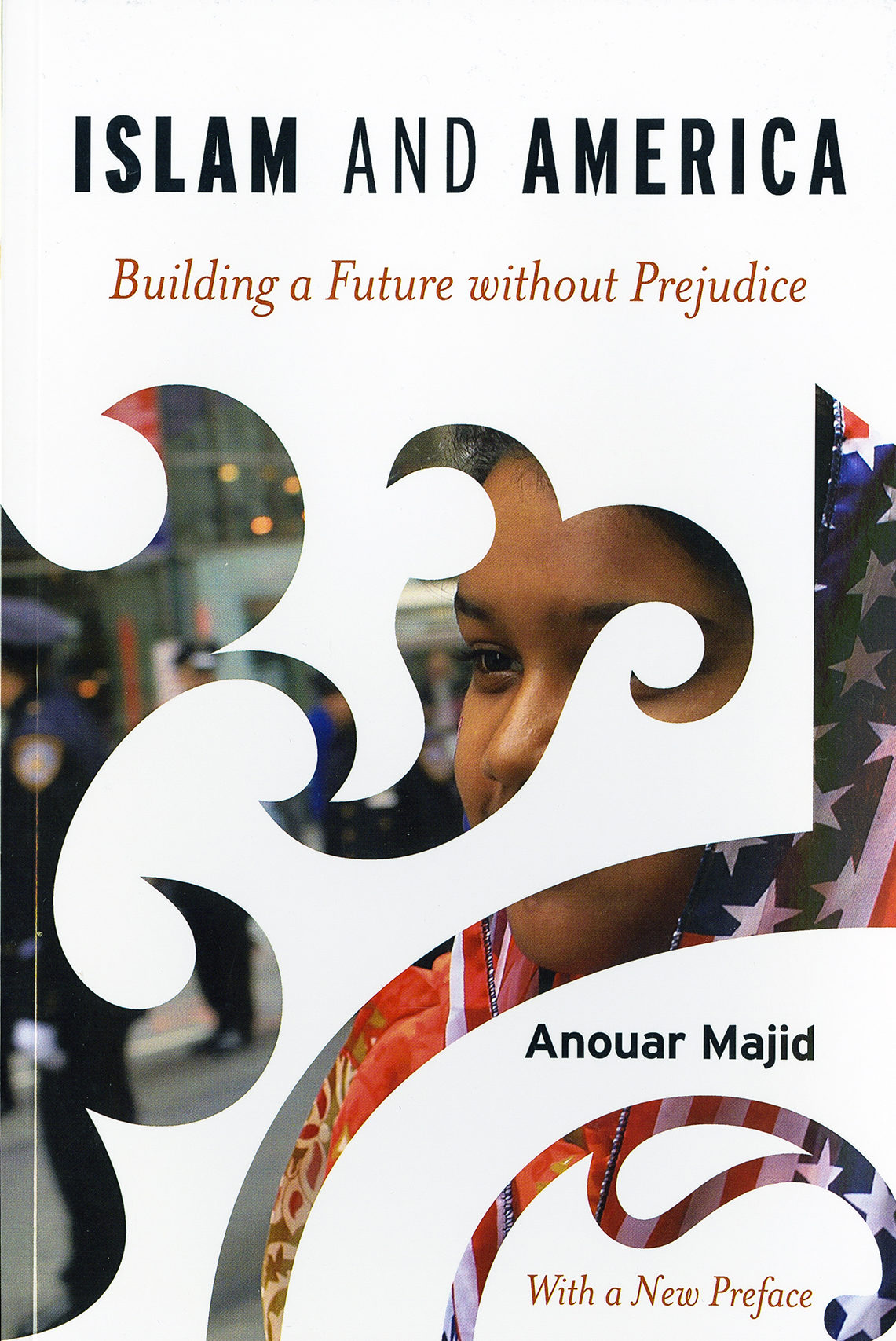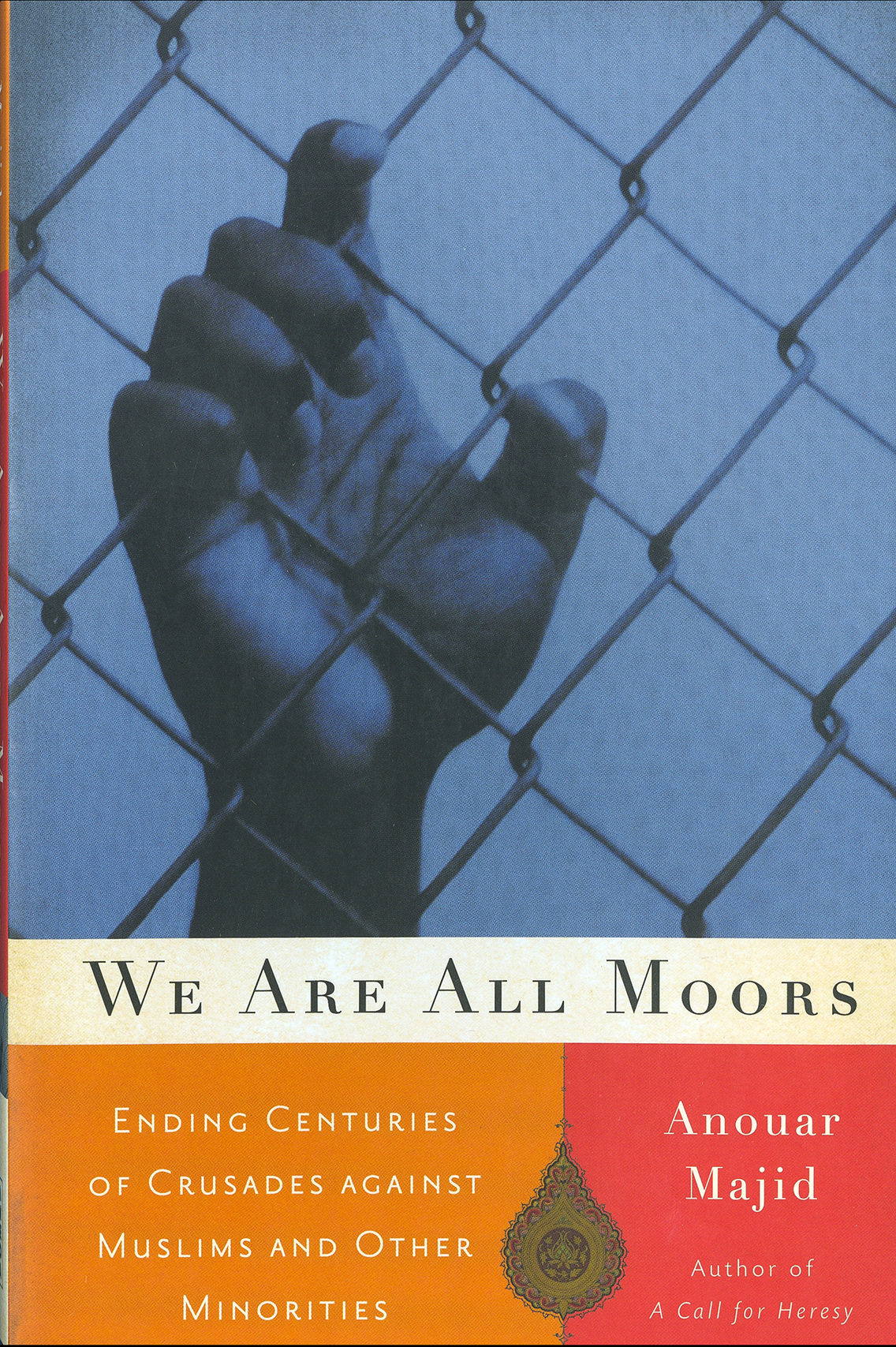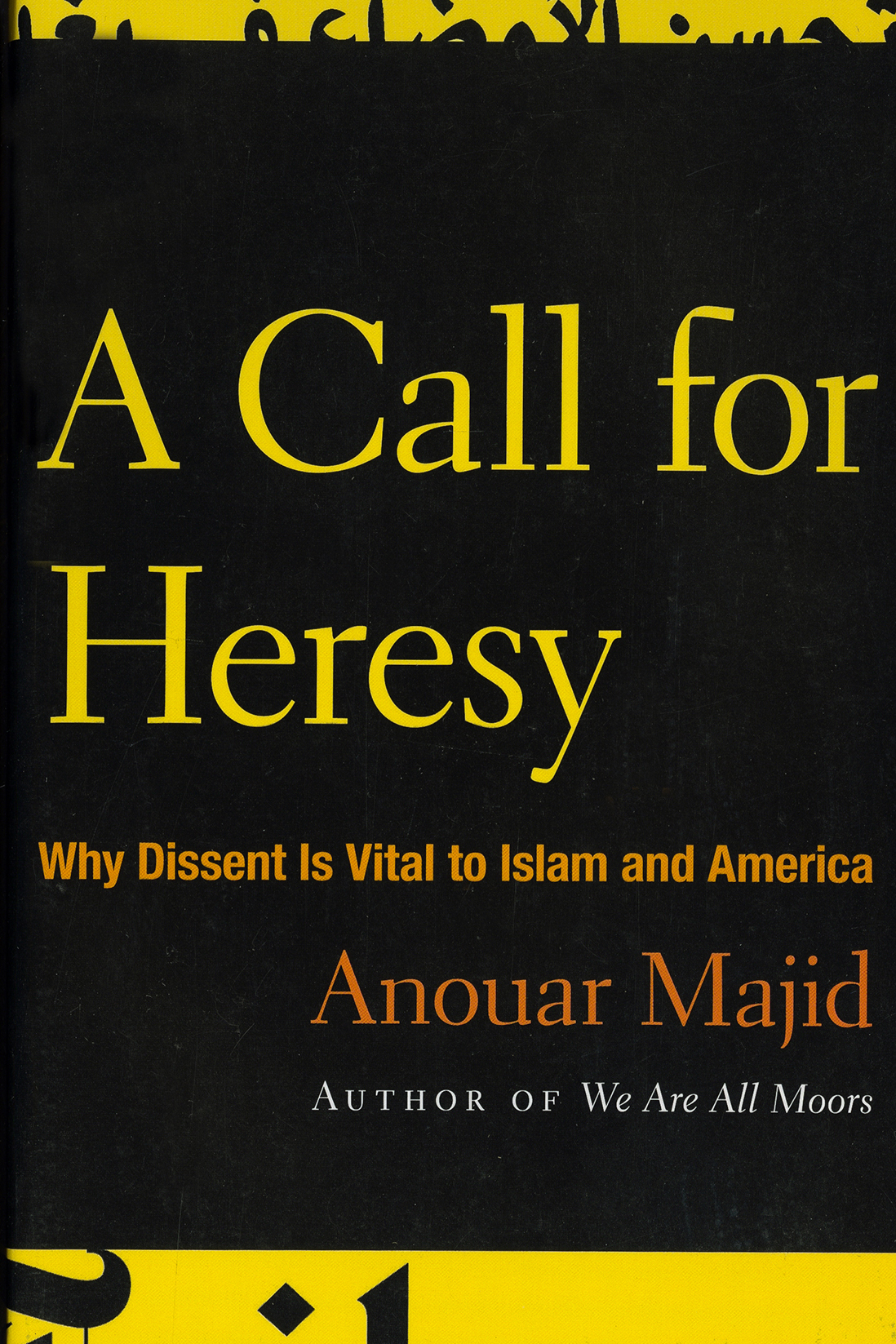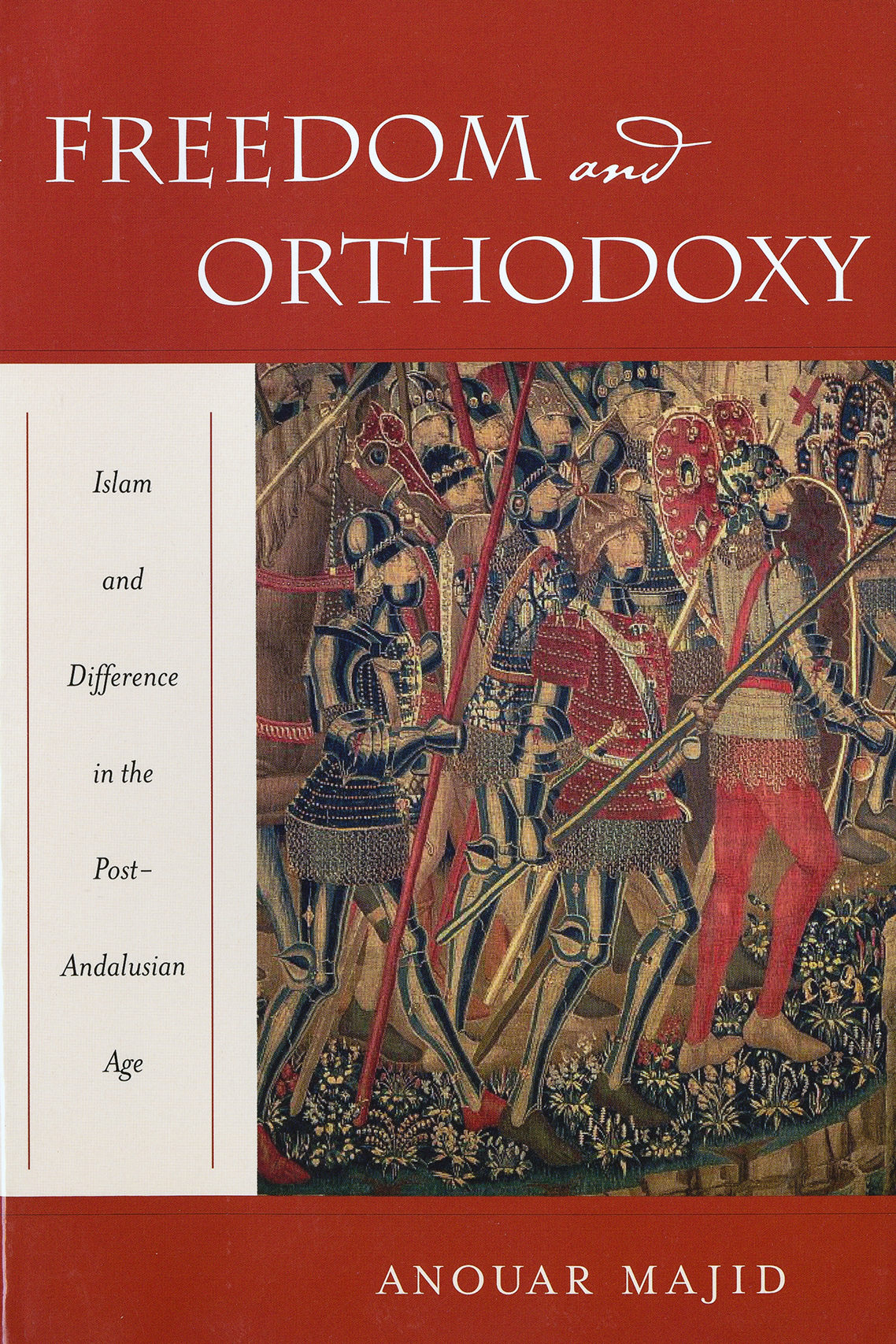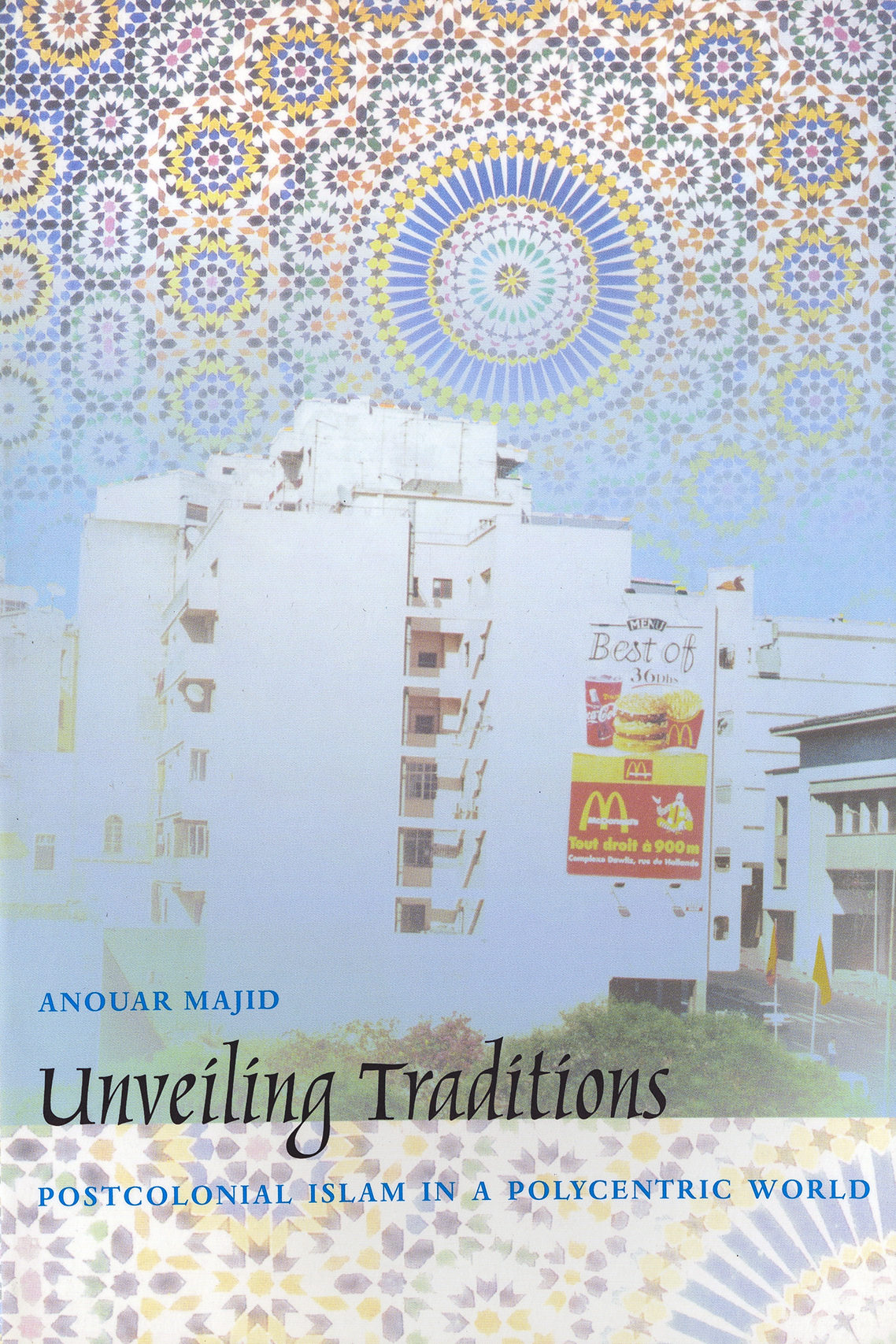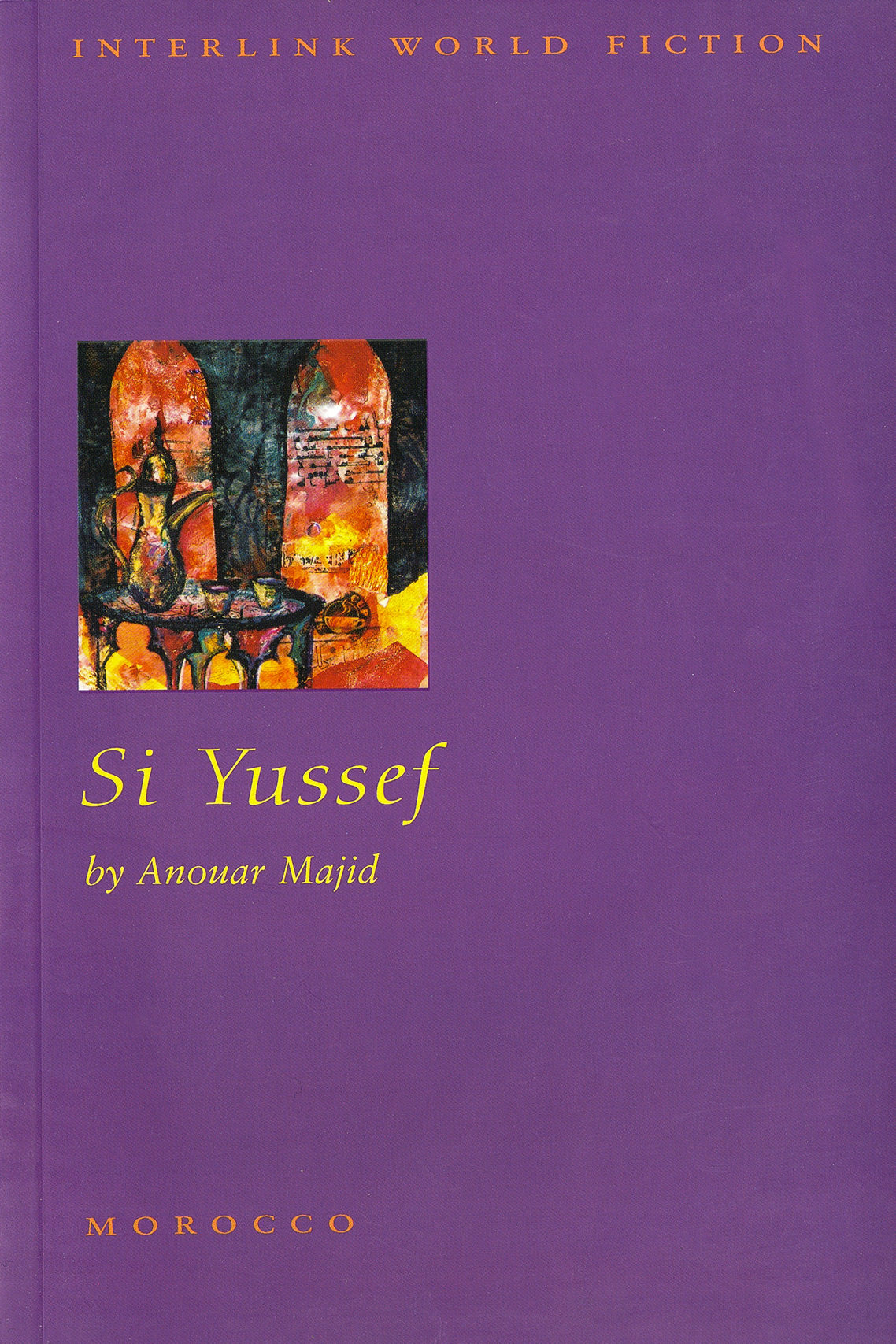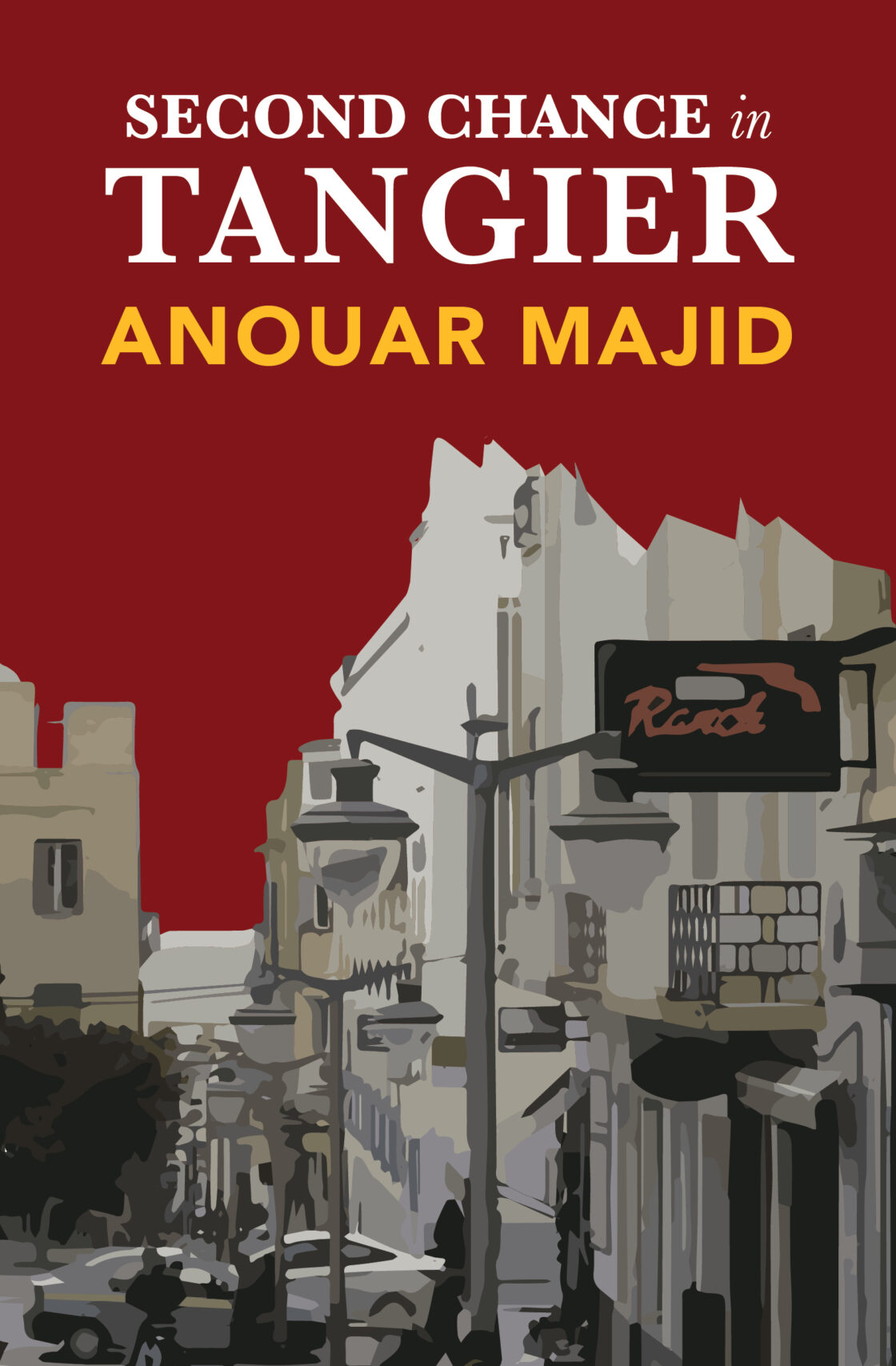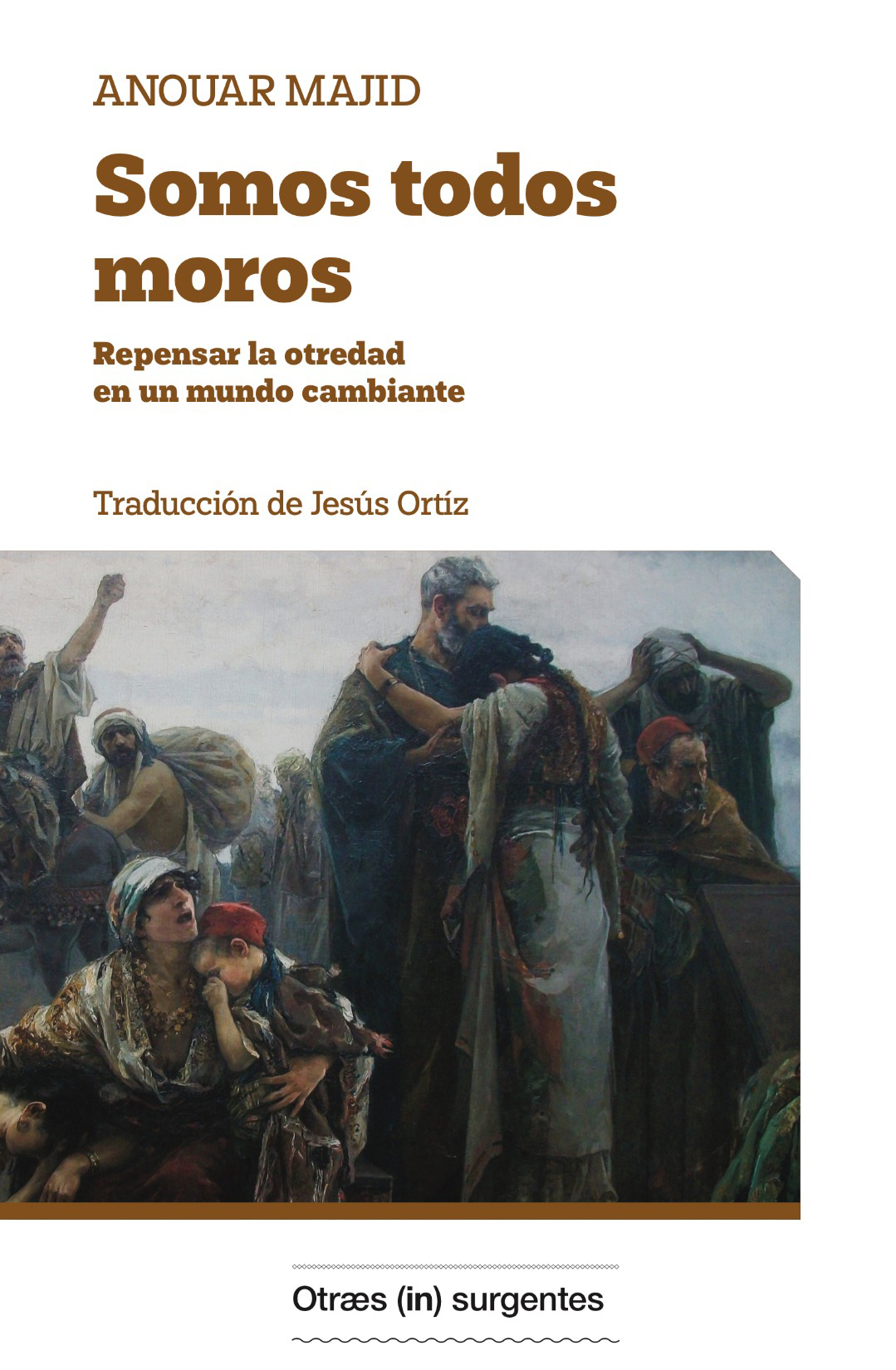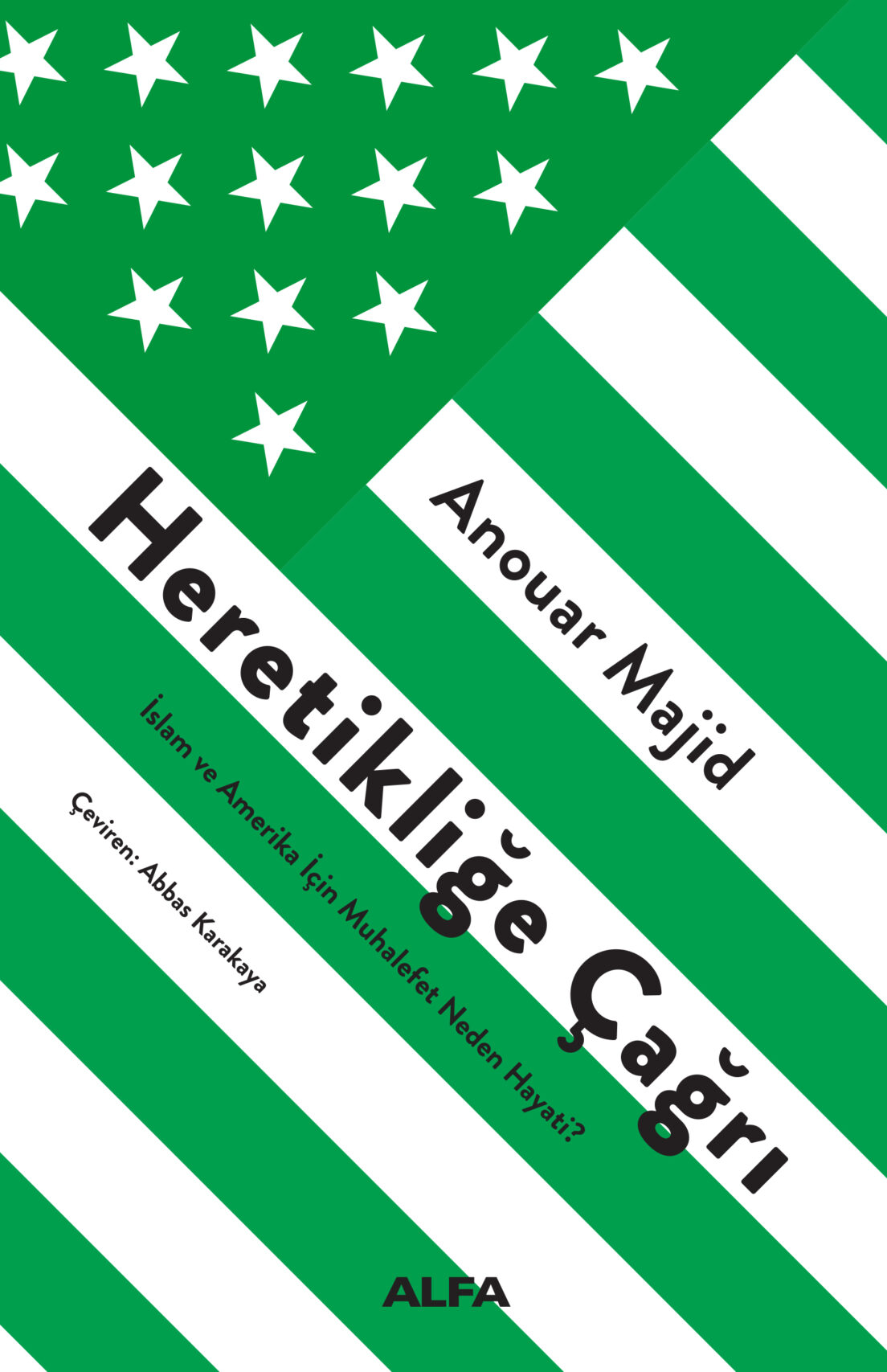Editor-in-Chief
 Anouar Majid is the author of several critically acclaimed books. His work has dealt with the place of Islam in the age of globalization and Muslim-Western relations since 1492. Cornel West described him in his book Democracy Matters as one of a few “towering Islamic intellectuals.” Majid has been interviewed by and has written for several media organizations nationally and internationally. His work was profiled by Bill Moyers on PBS, Al Jazeera, and France 24, as well as by television and media outlets in his native Morocco. He is one of eight global scholars interviewed by the Dutch philosopher Fons Elders in the film Islam Unknown. The Moroccan writer Abdelaziz Jadir published a 630-page biography about him in 2024 titled On the Winds of Inquiry and Knowledge: A Fictional Biography of Anouar Majid. Majid has lectured and given keynote addresses at major universities and cultural institutions in the United States and worldwide.
Anouar Majid is the author of several critically acclaimed books. His work has dealt with the place of Islam in the age of globalization and Muslim-Western relations since 1492. Cornel West described him in his book Democracy Matters as one of a few “towering Islamic intellectuals.” Majid has been interviewed by and has written for several media organizations nationally and internationally. His work was profiled by Bill Moyers on PBS, Al Jazeera, and France 24, as well as by television and media outlets in his native Morocco. He is one of eight global scholars interviewed by the Dutch philosopher Fons Elders in the film Islam Unknown. The Moroccan writer Abdelaziz Jadir published a 630-page biography about him in 2024 titled On the Winds of Inquiry and Knowledge: A Fictional Biography of Anouar Majid. Majid has lectured and given keynote addresses at major universities and cultural institutions in the United States and worldwide.
Majid worked at the University of New England in Maine for over 33 years. During that time, he served as Professor, Associate Provost, and Vice President for Global Affairs, among other functions. He was the founding director of Global Studies, founding chair of the English department, founding director of the Center for Global Humanities, founding director of the Tangier Global Forum, and founding director of UNE’s Tangier Campus, which he conceived, built, and managed in a period spanning 13 years. He retired from UNE as Professor Emeritus at the end of 2024.
Major Publications
Islam and America: Building a Future Without Prejudice (Rowman & Littlefield Publishers, 2015)
We Are All Moors: Ending Centuries of Crusades Against Muslims and Other Minorities (University of Minnesota Press, 2009)
A Call for Heresy: Why Dissent is Vital to Islam and America (University of Minnesota Press, 2007)
Freedom and Orthodoxy: Islam and Difference in the Post-Andalusian Age (Stanford University Press, 2004)
Unveiling Traditions: Postcolonial Islam in a Polycentric World (Duke University Press, 2000)
Si Yussef (Quartet, 1992; Interlink, 2005)
Second Chance in Tangier (Tingis Books, 2020)
In 2009, on the occasion of the 400th anniversary of the royal decree to expel the Moriscos from Spain, Majid published We Are All Moors: Ending Centuries of Crusades Against Muslims and Other Minorities to recast the history of all minorities in the West in light of the medieval clash of Christianity and Islam in Europe and, particularly, in the Iberian peninsula. The Library Journal commented that Majid “has now written an alternative history of European xenophobia that will stimulate and provoke readers across the political spectrum” and that his “work will generate criticism and conversation; it will be taken up by intellectual reading clubs as well as graduate seminars and should be made available to all academic audiences as well as informed lay readers.” Publishers Weekly noted that “Majid draws much-needed comparisons between events leading to atrocities like the Spanish Inquisition and present attitudes and trends, including growing disdain for Muslims in Europe and Hispanics in the U.S. Further, he shows how nations are strengthened by the acceptance and integration of the foreign (as is the trend, following initial xenophobic fits, in the U.S.), while cultural expulsion and/or cleansing hurts people and states (as in Germany’s post-WWII “occupation and dismemberment”). With this intriguing historical analysis, Majid sounds a clear warning against the West’s latest slide toward cultural scapegoating.” Choice magazine described the book as “remarkable” because it presents a “magnificent discussion of critical issues. . . It is an important find for the most uninformed to the most sophisticated reader, and would be a wonderful addition to any private or public collection.” In its November 6, 2009 issue, the Times Literary Supplement wrote that in this “wide-ranging book,” the “Moor is Majid’s prototype for the unwanted,” a “metonym for all alienated groups.” Gustavo Arellano, the radio host and author of the syndicated column “¡Ask a Mexican!” said that Majid “has written an amazing book” and “I predict We are All Moors will become the Facing West: The Metaphysics of Indian-Hating and Empire-Building for Mexicans.”
On January 7, 2010, Library Journal reported that YBP Library Services ranked it the 6th best-selling book on religion since the previous April (2009) and no. 1 on Islam. Writing for the e-journal Borderlands (Vol. 9, No. 3, 2010), Vineeth Mathoor begins his review by stating that “Anouar Majid has produced one of the most striking and theoretically challenging books to recast the history of minorities across Europe and America” and that the book challenges “the theories arguing for separation of human beings on various grounds, and shows that as humans we all are knotted together with inseparable bonds of shared love and respect.” The October 2013 issue of Islam Today published a long review that concluded with the following statement: “The book is well documented and brilliantly researched, with lot of detail, not only very useful for students as well as scholars of history and humanities, but also very readable, and even necessary for the general public, especially now.”
The University of Minnesota Press’s lead title of the Fall 2007 season was Majid’s A Call for Heresy: Why Dissent is Vital to Islam and America. The book has been praised for its impartial analysis of both Islam and American culture. Foreword Magazine wrote that “open-minded readers will gain many insights from Islamic and early American ‘heretics’ bestowing a rich appreciation for the value that voices of dissent bring to any society.” Multicultural Review noted that “issues are addressed in an even-handed manner, all the more remarkable given the politically charged nature of interpretations of events and situations taking place in the past decades,” while Digest of Middle East Studies described A Call for Heresy as “analytically fruitful and handles works in Arabic and French adeptly. The book should be useful to an audience in need of less cantankerous and more productive ways to look at the ground that Islam and the West share.” The journal Contemporary Islam concluded a long review of the book by saying: “For Muslims to embrace their faith without rejecting modernity, the kind of dissent that challenges intolerance and promotes reasoned diversity is necessary. For this reason alone, reading Majid’s masterful narrative is vital.” Writing for the Journal of Law and Religion, Afra Jalabi described A Call for Heresy “as a storehouse for anyone in search of solid scholarship on the histories of dissent in both Muslim and American cultures, dating back even to early Christianity and the founding years of Islam, while also touching upon some medieval events.” The book, she concluded, is “a well-researched, well-written book mapping our current challenges as a global community and offering a fresh perspective to go beyond the cultural walls that have besieged our contemporary discourses. It is a book that can inform and stimulate both American and Muslim readers alike.” Not long after Pakistan’s Governor Salman Taseer was assassinated for opposing his country’s blasphemy law, the Pakistani newspaper Dawnreviewed the book and wrote: “Majid’s work is brave, controversial and passionately argued. He challenges the easy stereotypes in mainstream American and Muslim societies, constantly asking for ‘heretics’ on all sides to reach out to each other. The ‘heretic’ in Majid’s account is an individual with the moral and intellectual tenacity to speak out and weave new narratives of existence out of the opulent cloth of ambiguity and complexity.” In a 2011 review, The Muslim World (32: 1) called it “engaging and insightful.” In 2018, Dr. Ameer Ali, former President of the Australian Federation of Islamic Councils and the chairman of the Australian Muslim Community Reference Group, called for reform by quoting Majid’s “illuminating analysis” and call for heresy.
In 2004, Stanford University Press published Majid’s Freedom and Orthodoxy: Islam and Difference in the Post-Andalusian Age, a book that looks at half a millennium of history and cultural contact to trace the evolving roots of discord and extremism. It was listed by the British magazine New Statesman as one of the best books of 2004. Reviewing the book, together with Tariq Ramadan’s Western Muslims and the Future of Islam (2004), for the Middle East Journal, Jon Armajani wrote that “Majid presents an all-encompassing view of significant aspects of history and suggests new conceptual avenues that may enable the world… to move toward peace and harmony.” The eminent professor John Voll, writing for the American Historical Review, commented that Freedom and Orthodoxy is “an important alternative to… universalist ideologies, whether Euro-American or militant Islam.” Al Jadid magazine wrote that the book is “extremely useful in presenting a historical perspective on the present situation in the Middle East” and that “it presents a wealth of information toward understanding the historical and ideological bases of the modern capitalist state, especially in the United States.” Itinerario, the official journal of the Forum on European Expansion and Global Interaction, began its review thus: “This wide-ranging work gallops across time and space in an urgent plea for a new celebration of ‘provincialism’ as humanity’s only hope.” It is a “masterful synthesis drawing on a breadth of scholarship by historians, theorists, and literary critics as well as primary literary texts.” The review concludes by saying that “this is an important work that calls for further engagement and serious contemplation.” Describing the book as “unassailably profound,” the Muslim World wrote: “This is an impressive book, written by an unrelenting scholar,” and that “it provides a refreshing break from the monotonous and fruitless attempt by cultures and civilisations to show how better they are.” In a review for the American Journal of Islamic Social Sciences, David Johnson stated that “Freedom and Orthodoxy is a brilliant apology for dismantling the hegemonic and false pretensions of western universalisms in favor of a world in which local groups (e.g., religious communities, regions, and nations) are allowed to construe their own strategies for cultural, political, and economic flourishing.”
Majid’s book Unveiling Traditions: Postcolonial Islam in a Polycentric World, published by Duke University Press in 2000, was recommended by the American Association of University Professors (AAUP) as a book for understanding the context of 9/11. After noting that “the book draws upon an impressive range of scholarship” and describing it as “learned, lucid, and compelling,” the online journal Jouvert wrote that “it poses a considerable challenge to scholars in a number of fields to reexamine some of their basic assumptions about modernity.” The journal Genre ended its long review of the book by concluding that “the study of literature and world affairs will be significantly advanced if this book manages to set new trends.” NWSA, the journal of the National Women’s Studies Association, wrote that Majid “has written a masterful and passionate work” that challenges readers to seek alternatives to the current global system. The Journal of International Migration and Integration wrote that Majid “has some important things to say that scholars on all sides [Islam and West] should consider” and that the author “succeeds in opening up questions with which scholars, policy-makers and intercultural researches should be conversant.” Writing for the American Anthropologist, Amal Rassam wrote that, in the course of making his argument, Majid “displays a wide intellectual range that crosses disciplinary boundaries and draws on Anglo-American, French, and Arab scholarship.” Unveiling Traditions, it continued, “is a passionately argued, academically grounded work about the ongoing crisis of Muslim societies faced with new global realities engendered by world capitalism and the cultural hegemony of the West.” The international journal of postcolonial studies, Interventions, began its review by saying that the book “could not be more timely, appearing almost prophetically as a voice of both urgency and moderation in its vision of a progressivist Islam. . . . It cannot be emphasized enough how salient this work is, how auspicious its defense of a moderate and humanist vision of Islam has turned out to be.” The book, Interventions continued, is “of impressive scope” and “might be read in dialogue with (or against?)” Hardt and Negri’s Empire. In his book Democracy Matters (2004) Cornel West describes the book as a “superb text” and a “must-read.” In an essay on Marshall G. S. Hodgson’s The Venture of Islam, the eminent scholar of Islam Bruce B. Lawrence described Unveiling Traditions as Majid’s “broad gauged manifesto.”
In 1992, Majid published Si Yussef (reprinted 2005), a Moroccan novel about the chance encounter between a young university student and an old man on the brink of death. It has been the subject of chapters in several books, including Michael K. Walonen’s Writing Tangier in the Postcolonial Transition: Space and Power in Expatriate and North African Literature (Ashgate) and Steven Salaita’s Modern Arab American Fiction: A Reader’s Guide (Syracuse University Press). Si Yussef continues to get critical attention and was the subject of a roundtable conversation at Yale University in March 2013. The Guardian listed it as one of the ten best novels on Tangier.
Following insistent requests by friends and colleagues in Morocco to write a novel, Majid published Second Chance in Tangier, a sort of sequel to Si Yussef that is also a stand-alone novel. His goal was to avoid the literary tropes of the American marketplace and speak directly to Moroccan readers. The novel was the subject of a literary panel in March 2022. Writing for Business Jet Traveler, Mark Eveleigh listed it as one of nine novels “that will make you want to visit Africa.”

